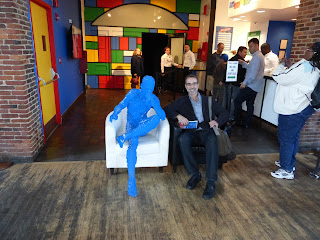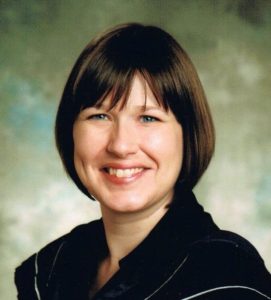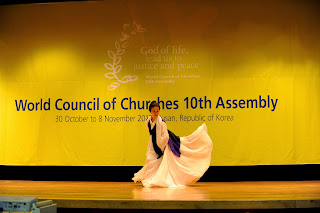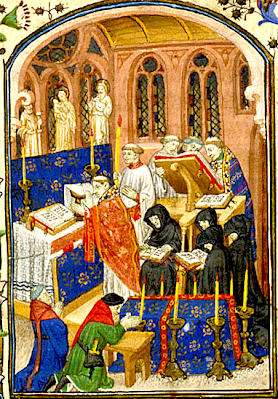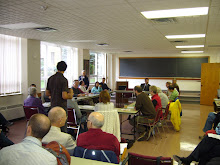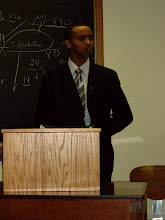The Epiclesis in Early Eastern Eucharistic Prayers
by Dr. Pablo Argárate (University of Graz - Austria)
 The belief that God is One and Three forms without doubt the core of Christianity. However, while the highly conflictive development of the doctrine on the second Person is well known, the role and relevance of the third Person in the Trinitarian dogma remain obscure and to a great extent subordinated. The present lecture addresses the emerging Pneumatological discourse, based however not on the Patristic Pnematological treatises, but on the analysis of the evolution of the epiclesis up to the beginning of the fifth century, focusing upon its different forms in the main Eastern ancient anaphorae. It presents their essential characteristics and differences, paying particular attention to the technical terminology and function. In this way, it explores the different theological substrata patent in the diverse formulae. Liturgy precedes the theological reflection and, in the same time, follows it.
The belief that God is One and Three forms without doubt the core of Christianity. However, while the highly conflictive development of the doctrine on the second Person is well known, the role and relevance of the third Person in the Trinitarian dogma remain obscure and to a great extent subordinated. The present lecture addresses the emerging Pneumatological discourse, based however not on the Patristic Pnematological treatises, but on the analysis of the evolution of the epiclesis up to the beginning of the fifth century, focusing upon its different forms in the main Eastern ancient anaphorae. It presents their essential characteristics and differences, paying particular attention to the technical terminology and function. In this way, it explores the different theological substrata patent in the diverse formulae. Liturgy precedes the theological reflection and, in the same time, follows it.
Prof. Pablo Argarate is Professor
of Patristic at the Faculty of Theology and Head ot the Institute for Ecumenical Theology, Eastern Orthodoxy, and Patristicat the University of Graz.
 Becca Whitla, BFA, MSMus, CRCCO, ARCT, is a doctoral candidate at TST with a focus on liberationist, decolonial and postcolonial perspectives on congregational song. With over twenty years of music-making experience—from congregations and multifaith events to community choirs and multidisciplinary artistic collectives—she has served as the Music Director at Church of the Holy Trinity, Toronto, has taught courses at Emmanuel College, Toronto, and Seminario Evangélico de Matanzas, Cuba, is a SSHRC scholarship winner, and is presently Interim Director of Chapel at Emmanuel. Her peer-reviewed publications include several journal articles, book chapters and encyclopaedia entries related to her dissertation research.
Becca Whitla, BFA, MSMus, CRCCO, ARCT, is a doctoral candidate at TST with a focus on liberationist, decolonial and postcolonial perspectives on congregational song. With over twenty years of music-making experience—from congregations and multifaith events to community choirs and multidisciplinary artistic collectives—she has served as the Music Director at Church of the Holy Trinity, Toronto, has taught courses at Emmanuel College, Toronto, and Seminario Evangélico de Matanzas, Cuba, is a SSHRC scholarship winner, and is presently Interim Director of Chapel at Emmanuel. Her peer-reviewed publications include several journal articles, book chapters and encyclopaedia entries related to her dissertation research. 





